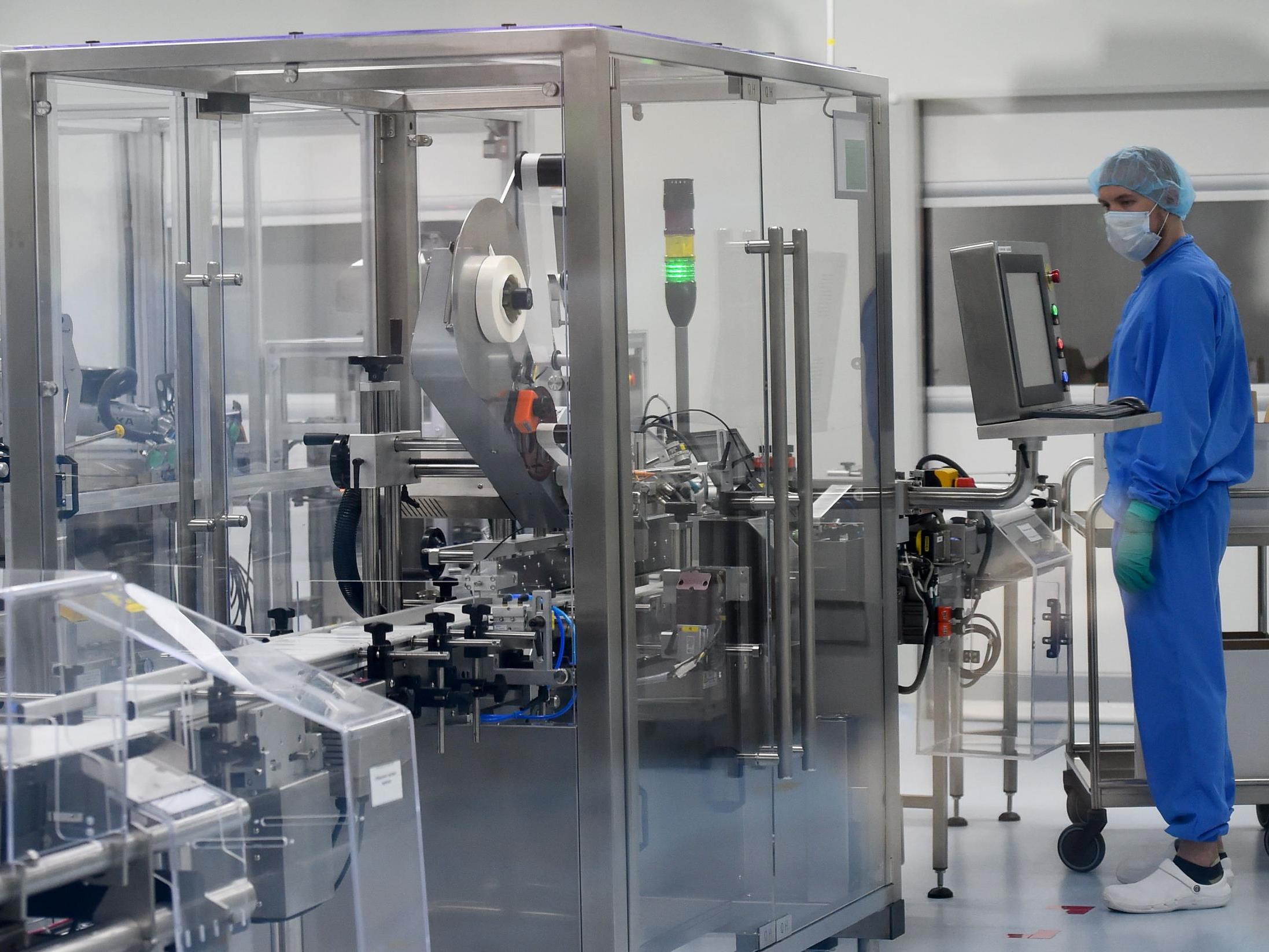Coronavirus: Drug giant AstraZeneca urged to make vaccine patent-free
Exclusive: AstraZeneca criticised after dismissing WHO initiative to share trial data and intellectual property rights for potential Covid-19 vaccines, writes Samuel Lovett


Campaigners have urged AstraZeneca to disclose its plans to develop a coronavirus vaccine and guarantee that it will be patent-free, after a number of pharmaceutical giants snubbed the scheme set up by the World Health Organisation (WHO) to share trial data and intellectual property (IP) rights.
AstraZeneca first teamed up with Oxford University in April to produce and distribute a Covid-19 vaccine, before announcing last week that it had partnered with British cell-therapy company Oxford Biomedica to bolster its manufacturing capacity to produce 1 billion doses.
The Cambridge-based pharmaceutical group, whose market value has surged over the past month, has already received orders from the UK and US governments for its vaccine candidate, called AZD1222.
The Trump administration paid £969m to secure almost a third of the 1 billion doses planned for the vaccine, which has now moved into phase two and phase three of its clinical human trials, while the UK has pledged £65.5m of funding in return for 100 million shots.
However, despite the significant amount of taxpayers’ money that has been pumped into the development of AZD1222, concerns have been raised that AstraZeneca could still apply a patent to its vaccine and prevent universal access.
A number of health campaigners and patient groups, including Global Justice Now, StopAids and Just Treatment, have sent a letter to AstraZeneca in which they call for transparency and an “assurance on the means of getting this vaccine to all who need it if it is proven to be effective”.
The letter reads: “There should be no pharmaceutical monopolies during a pandemic and patents should never prevent patients getting affordable access to important diagnostics, medicines or vaccines.
“Can you please confirm what safeguards have been included in the agreement to guarantee access and affordability for the NHS and for the billions across the world, especially in developing countries, whose lives and livelihoods are threatened?
“You have stated that you will price the vaccine at cost during the pandemic. Will you make public all your costs to allow independent verification of this claim?”
The campaigners also call for greater scrutiny of the agreement reached between AstraZeneca and Oxford University’s Jenner Institute, where a team first developed the vaccine candidate before licensing it to the British firm.
“Will you make the full terms of the licence agreement with the Jenner Institute/Oxford University public, as has been normalised through the global public health standards set by the Medicines Patent Pool?” the letter adds.
“This vaccine discovery has largely been financed with public funds and we believe that that taxpayer investment should lead to public health outcomes that help to end this pandemic. Pharmaceutical monopolies have no place during a global pandemic.”
This comes as AstraZeneca revealed on Monday that “expenses to progress the vaccine are anticipated to be offset by funding by governments”.
Although the company publicly declared that it will offer “fair and equitable access to everyone around the world”, the firm is one of many to have questioned the WHO’s voluntary vaccine “pool”, which encourages governments and pharmaceutical groups to share data, IP and manufacturing know-how.
Addressing the initiative, called the Covid-19 Technology Access Pool (C-TAP), AstraZeneca’s chief executive, Pascal Soriot, said: “I think IP is a fundamental part of our industry and if you don’t protect IP, then essentially there is no incentive for anybody to innovate.”
Dr Albert Bourla, chief executive of Pfizer, described the scheme as “nonsense”.
“At this point of time it’s also dangerous,” he said. “There’s a giant effort right now happening to find a solution. The risks we are taking [represent] billions of dollars and the chances of developing something are still not very good.
“So to have a discussion, to say keep in mind that if you discover [a vaccine or drug], we are going to take your IP, I think it’s dangerous.”
So far, 35 countries including Norway, the Netherlands and India – one of the world’s largest generic drug manufacturers – have signed up to C-TAP. The US and UK, both of which have been accused of bowing to pressure from the pharmaceutical sector in recent weeks, have distanced themselves from the WHO initiative.
Heidi Chow, pharmaceuticals campaigner at Global Justice Now, warned that nationalistic self-interest could hinder global cooperation and precipitate a “reckless scramble” for coronavirus treatments.
“Big pharma’s rejection of the WHO global pool is a rejection of global solidarity,” Ms Chow told The Independent. “It is indefensible that the industry is guarding its profits at the expense of global public health during this crisis.
“Governments are investing billions of public funds into research and should mandate that any publicly funded vaccines and treatments are shared with the pool.”
Ms Chow also called the UK government “shameful” for refusing to participate in the WHO’s sharing initiative.
“Despite all the public money going into coronavirus research, British ministers are putting the profits of pharmaceutical companies like AstraZeneca and GSK ahead of saving lives around the world.
“There is still time for the UK to change course and respond to the WHO’s call for global solidarity.”
Dr Tedros Adhanom Ghebreyesus, director general of the WHO, said at the launch of the C-TAP scheme: “Tools to prevent, detect and treat Covid-19 are global public goods that must be accessible by all people.
“Science is giving us solutions, but to make those solutions work for everyone, we need solidarity.”
AstraZeneca said it was “committed to broad and equitable access globally and we are doing that at no profit during the pandemic”, adding that it was in discussion with potential partners to increase the production and distribution of its vaccine candidate, “particularly for low-and-middle-income countries”.
A spokesperson for the company said: “IP is a fundamental part of our industry and has proven a very powerful driver of innovation in technology industries such as pharmaceuticals. Challenging its ownership is not the solution. What is needed in times of crisis like this is a robust pharmaceutical industry that can move quickly and that has the capacity, scale and will to step up to help, and to do it at no profit.”
Join our commenting forum
Join thought-provoking conversations, follow other Independent readers and see their replies
Comments
Bookmark popover
Removed from bookmarks